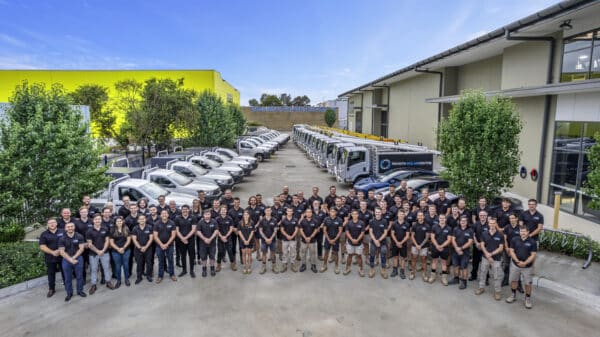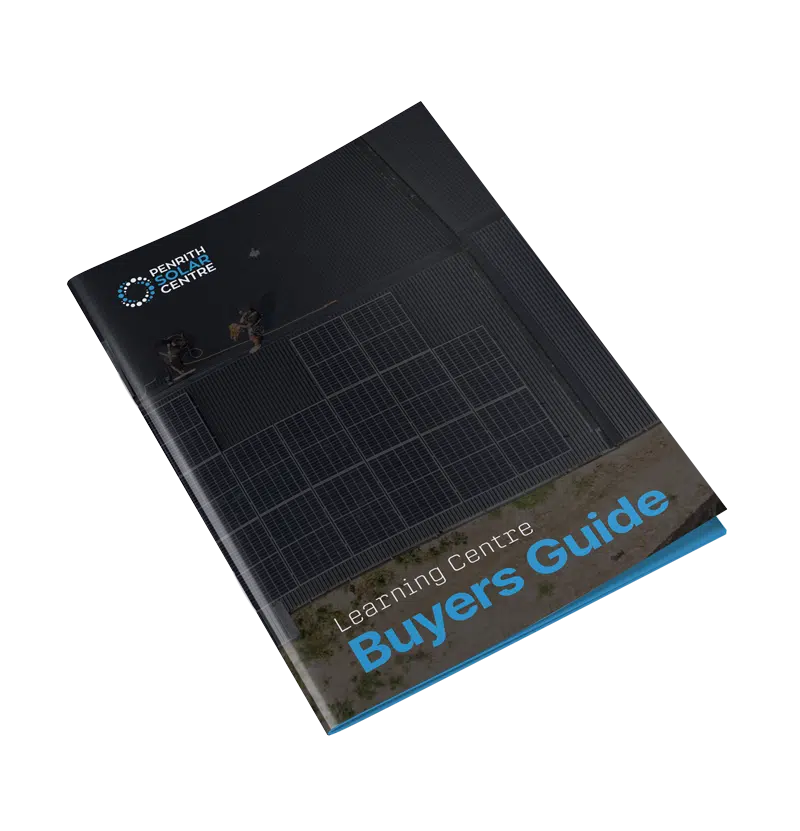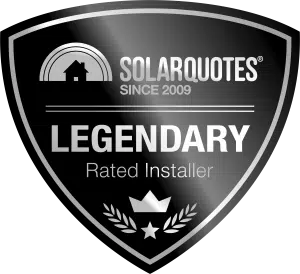If you’re thinking about solar panels, you’ve probably wondered how weather affects them. You might worry that cloudy days, rain, or even snow will stop your panels from working.
These are logical, valid concerns. How does weather affect your solar panels?
At Penrith Solar Centre, we install solar panels that are more resilient and effective in different weather than most people think.
In this article, you’ll learn:
- How Solar Panels Work
- Weather Impacts on Solar Panels
- Efficiency in Adverse Weather
- Is Solar Still Worth It?
By the end of this article, you’ll understand how various weather conditions impact your solar panels, debunk common myths, and get tips on maintaining them no matter the weather.
How Solar Panels Work
Solar panels convert sunlight into electricity through photovoltaic cells that are in each solar panel. Sunlight hits these cells, causing electrons to get excited, move, and generate an electric current.
It’s light, not heat, that powers your panels. This means solar panels can still produce electricity even on cloudy or cold days, though their efficiency might vary based on weather conditions.
We know what you’re thinking: how can the sun shine through inclement weather that’s between it and your panels? We’ll get into that next.
If you’re interested in learning a bit more about the process of choosing components for your solar system, you might want to check out the following article titled, How to Shop for a Solar System.
Weather Impacts on Solar Panels
Sunny Days: Ideal but Not Always Perfect
- Performance: Solar panels perform best in direct sunlight. However, extreme heat can lower efficiency because high temperatures affect the solar cells, reducing output.
- Myth Debunked: Many people think more heat equals more power, but panels need light, not heat. High temperatures can actually decrease efficiency by up to 10-25%, depending on the panel’s temperature coefficient.
- Maintenance Tip: Keep panels clean for sunlight absorption. Dust, bird droppings, and debris can reduce efficiency, so regularly rinse them with water or hire a professional to clean them (we offer that service).
Cloudy and Rainy Days: Not as Bad as You Think
- Performance: Solar panels still work on cloudy days. An Enphase system with microinverters achieves great efficiencies with shading because of panel-level optimisation. Rain can also help by naturally cleaning your panels, removing dust and dirt that block light.
- Myth Debunked: The idea that panels are useless on cloudy days is false. Modern panels are designed to capture different types of light, including diffused light on overcast days.
- Maintenance Tip: Ensure trees or buildings don’t cast extra shade on your panels. It’s also important to be aware of shade from chimneys, TV antennas, and wiring. If your area gets frequent rain, check mounts and connections to prevent water damage.
Snow and Ice: Cold Isn’t the Enemy
- Performance: Snow can cover panels, blocking light temporarily. However, the angle of installation often helps snow slide off. Cold weather actually boosts efficiency. Your solar panels love a chilly atmosphere with full sunlight.
- Myth Debunked: Solar panels don’t break in the snow. They’re made of durable materials that can handle heavy snow loads.
- Maintenance Tip: Use a soft brush or broom to remove snow. Avoid harsh tools that could scratch the panels.
Extreme Heat: Managing High Temperatures
- Performance: Solar panels can lose efficiency when temperatures exceed 25°C. Heat can cause components to expand, affecting electrical flow and reducing power output.
- Myth Debunked: Panels don’t need to be in blistering heat to work well. In fact, cooler sunny days are often more efficient.
- Maintenance Tip: Ensure panels are well-ventilated. Space between the panels and your roof allows air to circulate, cooling the panels and maintaining efficiency.
Hail, Wind, and Cyclones: Built to Last
- Performance: Most solar panels are tested to withstand hail up to 25mm at 23 m/s. Strong winds may cause mounting issues, but well-installed systems can handle severe weather.
- Myth Debunked: Panels aren’t fragile. They’re built with tempered glass and frames designed to endure rough conditions.
- Maintenance Tip: Inspect mounts and fixings after strong storms to ensure nothing has loosened. Replace any damaged panels promptly to avoid electrical issues.
Bushfires: Smoke and Ash Impacts
- Performance: Smoke can reduce light reaching the panels, decreasing efficiency. Ash and dust can also settle on panels, blocking sunlight.
- Myth Debunked: While smoke affects output, panels won’t be damaged by it directly. Regular cleaning helps maintain efficiency during fire season.
- Maintenance Tip: Use water and mild soap but avoid abrasive materials.
If you’re interested in learning a bit more about shopping for a solar system, you might want to check out the following article titled, 6 Mistakes to Avoid When Buying Solar.
Efficiency in Adverse Weather
- Regular Cleaning: Dust, debris, and bird droppings can reduce efficiency. Clean your panels every few months, especially after weather events like storms or bushfires.
- Inspection: Check your panels and mounting systems regularly, especially after extreme weather. Look for cracks, loose bolts, or anything unusual.
- Use Micro-Inverters: These devices optimise each panel individually, helping your system perform better even when part of it is shaded or dirty.
If you’re interested in learning a bit more about the importance of a good installer for your solar (the most important component of any system, seriously), you might want to check out the following article titled, In-house Installers vs. Subcontractors: Which is Better?
Wrapping Things Up: Is Solar Still Worth It?
Absolutely. Solar panels are designed to handle a wide range of weather conditions, from cloudy days to extreme heat. Despite some efficiency loss in specific scenarios, the benefits far outweigh these minor drawbacks. Investing in solar energy means lower electricity bills, reduced carbon footprint, and energy independence.

At Penrith Solar Centre, we’re here to help you get the most out of your solar investment, no matter the weather.
If you’re interested in learning a bit more about your energy needs, you might want to check out the following article titled, How Much Solar Do You Need?










